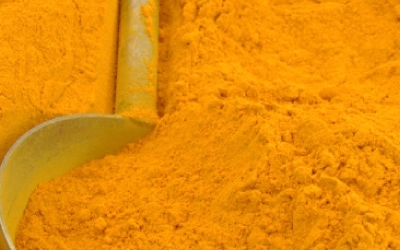Spice Up Your Life: Rheumatoid Arthritis and Curcumin
If over-the-counter or prescription medications are your current method to improve your joint wellness, you may want to spice things up a bit. This is according to numerous studies which have found that curcumin, the active ingredient in the spice turmeric which is considered beneficial because of its anti-inflammatory properties, can improve your wellbeing when you have rheumatoid arthritis.
Rheumatoid arthritis (RA) is a chronic autoimmune disorder that affects women two to three times more than men, characterised by inflammation of the lining in your joints, which leads you to accumulate fluids. This means that your joint lining expands, causing damage to the adjacent bone, and you can experience pain, swelling, and limited movement as a result. Most often, your joints in your fingers are affected but RA can also spread to your toes, ankles, knees, elbows, hips, and shoulders. On more rare occasions, the disease can also harm your eyes, lungs, heart, blood, nerves, and skin.
A new study published in Phytotherapy Research said that their finding ‘provides the first evidence for the safety and superiority of curcumin treatment in patients with active RA.’ For the study, 45 patients were randomly assigned into three groups which, every day, took either 500 mg curcumin 50 mg diclofenac sodium daily (a nonsteroidal anti-inflammatory drug) or both. Everyone improved, but patients in the curcumin group had the highest percentage of improvement. The study also found that curcumin was not found to cause any adverse reactions, which is an important factor to consider. The drugs currently prescribed to treat rheumatoid arthritis are associated with significant side effects.
Another study published in The Journal of Clinical Immunology recently noted curcumin has the ability to suppress your body’s production of a specific B cell-activating factor involved in rheumatoid arthritis. Whilst in a recent issue of the International Journal of Molecular Science, a team of experts, who reviewed the literature on the potential preventive abilities of phytochemicals such as curcumin and resveratrol in rheumatoid arthritis and other inflammatory conditions, found the compound worked in other ways. These scientists said that curcumin can inhibit your body’s production of inflammatory substances such as prostaglandin E2 and induce cell death.

Comments are closed.